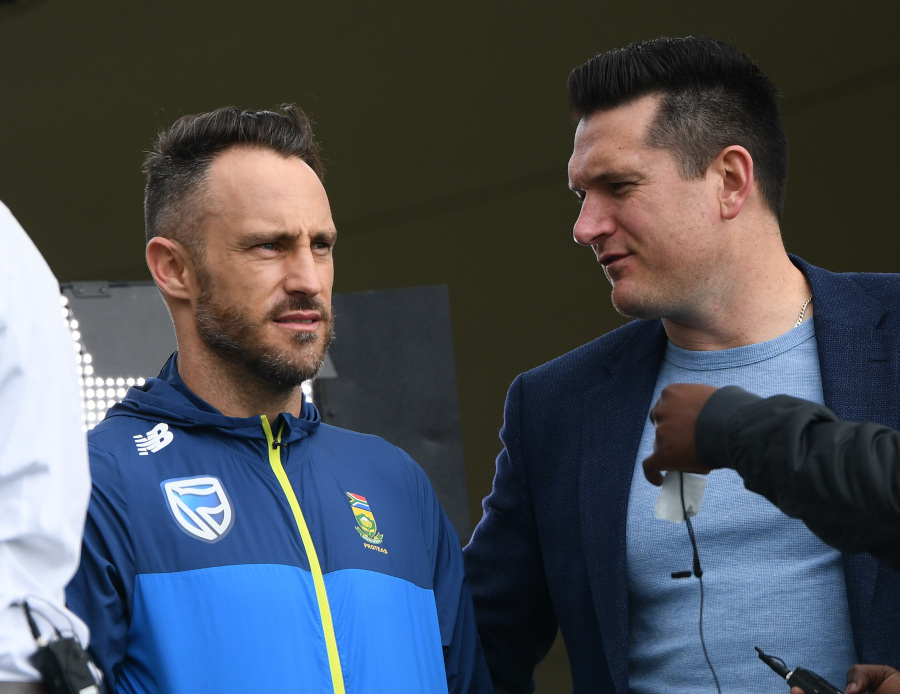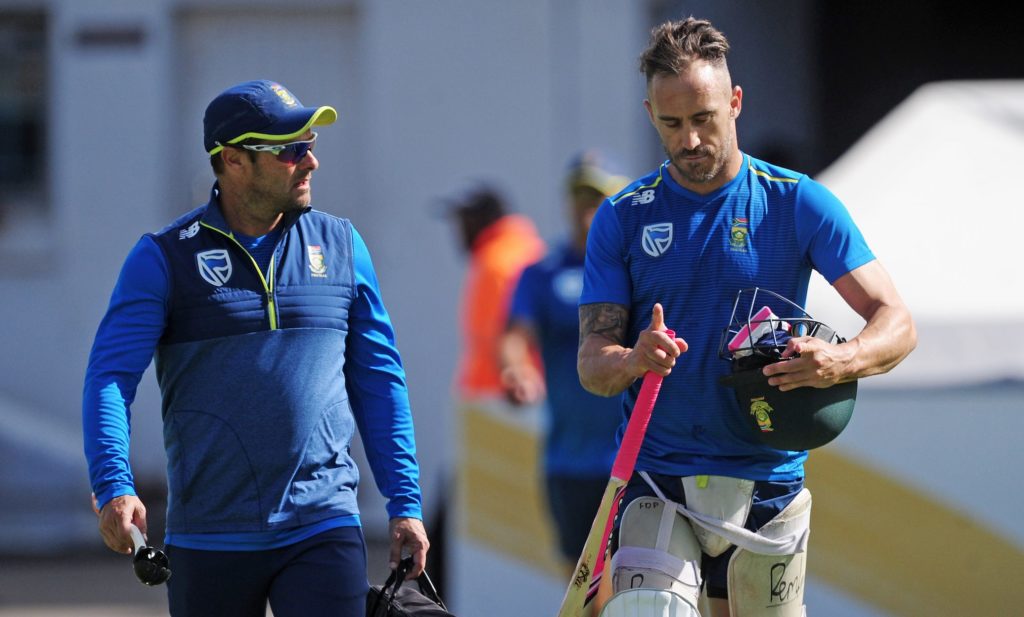Former Proteas captain Faf du Plessis says he “got no love” from coach Mark Boucher and CSA director of cricket Graeme Smith towards the end of his international career.
In his autobiography Faf: Through Fire, Du Plessis reveals that he had a strained relationship with both former Proteas players, who were appointed after South Africa’s poor 2019 World Cup campaign.
“Everyone needs love. But I got no love from Mark or Graeme,” he said.
In the book, Du Plessis describes Boucher as an exceptional technical coach, but says he paid little attention to the “softer skills” – like emotional support for the players, the team culture and honest conversations about his plans.
Before the second Test of Boucher’s first series as coach, at home against England in December 2020, it was announced that the team’s only black African batsman Temba Bavuma would be sent back to his franchise to find form.
Du Plessis was criticised for saying “We don’t see colour” when asked about it by the media, and said he felt as though he had to handle the saga alone even though it was Boucher who had spoken to Bavuma.
“That one quote of mine snowballed, and some journalists kept hammering on it,” he wrote. “As well as there being justified criticism of my form with the bat, there was also politicised reporting which added another dimension to the pressure I felt.
“I needed someone to support me in the media. Graeme and Mark were best positioned to clear the air and publicly show support for their captain. However, when Mark attended a press conference in the middle of this storm, he did not do so.”
WIN: Braai kit, signed bat and signed jersey
When Smith read out the names of the squad for the ODI series against England in late January 2020, he announced that Quinton de Kock would take over from Du Plessis as captain.
“He made no mention of me taking a break during that one-day series [as Du Plessis and Boucher decided together] or that I was still the T20 captain,” wrote Du Plessis.
“Given the unfavorable picture painted of me in recent media coverage, it was assumed that I had been stripped of the captaincy and kicked from the team. After the team announcement I sent a message to Graeme and said I was disappointed and didn’t feel I had their support.
“They never gave the impression that they were fighting for me.
“It would have made life easier if he had simply said: ‘Faf is taking a break from one-day cricket, but he is still our Test and T20 captain.’ By not doing so, he has created a new media monster.”

Du Plessis said he “truly felt alone in the Protea environment”.
“At the end of the Test series against England, I questioned whether my flame still burned as brightly as before. My desire to lead and my fire to play for the Proteas was slowly smothered. Mark and I didn’t click either … I began to understand that it would be better for the team to have a new captain, rather than someone who could not connect with the coach.”
Du Plessis informed Smith he would also relinquish the Test captaincy and while he continued to play for the team, even when he recorded a Test career-best score of 199 after the Covid-19 pandemic, he says he felt empty. “My flame went out at 199.”
Du Plessis then toured Pakistan before deciding to retire from Test cricket. When he tried to arrange a conversation with Boucher to inform him, the coach did not respond.
“His silence confirmed to me that the decision to retire from Test cricket was the right one,” he wrote. “What really brought it home to me was that even my biggest opponent, David Warner [of Australia] sent me a kind message to congratulate me on my Test career.”
ALSO READ: The day I saw Cullinan was a doos – Faf
Du Plessis had hoped to play in last year’s T20 World Cup in Dubai but CSA could not draw up a special contract in time for players like him, Imran Tahir and Chris Morris who only wanted to play the shortest form of the game for the Proteas.
The 38-year-old was also overlooked for the current T20 World Cup in Australia, despite being in excellent form at franchise level.








